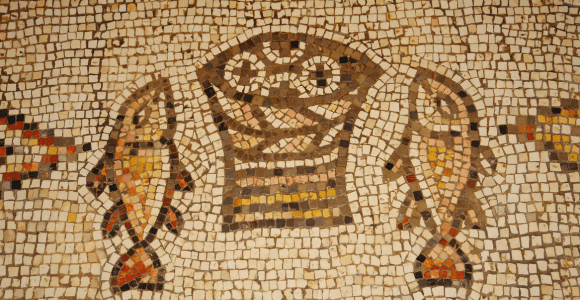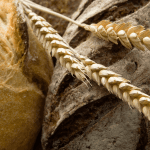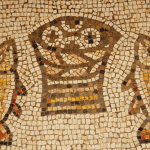
Our reading this week is from the gospel of Matthew:
When Jesus heard what had happened, he withdrew by boat privately to a solitary place. Hearing of this, the crowds followed him on foot from the towns. When Jesus landed and saw a large crowd, he had compassion on them and healed their sick.
Welcome Readers! Please subscribe to Social Jesus Here.
As evening approached, the disciples came to him and said, “This is a remote place, and it’s already getting late. Send the crowds away, so they can go to the villages and buy themselves some food.” Jesus replied, “They do not need to go away. You give them something to eat.” “We have here only five loaves of bread and two fish,” they answered. “Bring them here to me,” he said. And he directed the people to sit down on the grass. Taking the five loaves and the two fish and looking up to heaven, he gave thanks and broke the loaves. Then he gave them to the disciples, and the disciples gave them to the people. They all ate and were satisfied, and the disciples picked up twelve basketfuls of broken pieces that were left over. The number of those who ate was about five thousand men, besides women and children. (Matthew 14:13-21)
The news Jesus receives at the beginning of our reading this week is the news that Herod has executed John the Baptist.
Matthew’s version then condenses the story of shared food that follows from Mark. Matthew also connects the story with the Last Supper Jesus shared with his disciples, an indication that the Matthean community commemorated the eucharist to share resources in Jesus memory more than as a reenactment of the penal substitutionary atonement theories common in Western Christianity today.
This story had precedents for Jewish Jesus followers in Galilee. They were already familiar with stories like this from their own sacred texts. Consider the story of how Elisha also fed a multitude:
A man came from Baal Shalishah, bringing the man of God twenty loaves of barley bread baked from the first ripe grain, along with some heads of new grain. “Give it to the people to eat,” Elisha said. “How can I set this before a hundred men?” his servant asked. But Elisha answered, “Give it to the people to eat. For this is what the LORD says: ‘They will eat and have some left over.’” Then he set it before them, and they ate and had some left over, according to the word of the LORD. (2 Kings 4:42-44)
These stories of the feeding of multitudes, repeated in each of the synoptic gospels, enlarges the kind of story in 2 Kings and keeps alive an economic lesson about our shared resources and mutuality (see Mark 6:35-44; Luke 9:12-17; John 6:1-15). The story in Kings occurs in the middle of a famine, but other parallels would also have been familiar to Galilean Jesus followers familiar with the Elisha story. Jesus is affirming these universal truths: we collectively have more, enough for everyone, when we pool our resources than we do when we live in individualistic isolation with silos of hoarded resources.
The path of life for the future is always one of sharing, cooperation, and a commitment to ensure everyone is taken care of and has enough for them, not only to survive, but to thrive. We’ll unpack this further, next.
(Read Part 2.)














